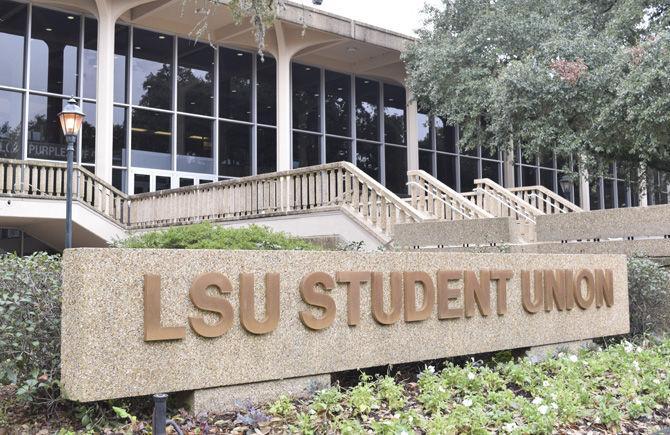The prospect of choosing others’ consequences for disciplinary infractions may be daunting for some and exciting for others, but in either case, the University Hearing Panel is providing that opportunity for any students who choose to apply.
Charged students who are unhappy with the University’s original disciplinary decision may request to have their case heard by the panel, but must agree to accept the new decision. Each panel is comprised of three to five staff, faculty and students.
Assistant Director of the Office of Student Advocacy and Accountability, Daniel DeLuca, said University students respond more favorably to a student hearing their case, since a student will often find their situation more relatable and possibly be more sympathetic than the average faculty member.
“Having a student voice that can resonate with what you’re going through is really important,” DeLuca said. “It’s someone that you can relate to when there’s a lot of feelings going on and there’s some nervousness on both sides.”
During the hearing, the charged student is asked to read a statement to the panel. If they are not found responsible, the case is dismissed, but if found responsible, character references may be requested. After the hearing, which typically lasts about three hours, the charged student learns the outcome and receives a letter outlining the new disciplinary terms.
Disciplinary action may be something as simple as a mandatory Moodle Module or reflection essay, but can also extend to academic probation, suspension and expulsion.
“The outcomes are endless,” DeLuca said. “Whatever we think will help a student learn more. This is an educational process.”
DeLuca said all sorts of issues are brought before the panel, including academic dishonesty and misconduct. If a student is found responsible for any violation under the code of conduct, they have an opportunity to go to the student panel.
“I would imagine it can be challenging for a student to hold another student accountable and make those difficult decisions,” DeLuca said. “But we always tell our panelists our doors are wide open and we’re happy to speak with them if they ever go through making a difficult decision. It can be hard, for sure.”
Finding a verdict can be especially difficult for student panelists, since these academic hearings do not operate on the definitive “beyond a shadow of a doubt” judicial reasoning. In order to find a charged student responsible, panelists are asked to be 51 percent sure of their decision.
“I like to say ‘fifty and a feather,’” DeLuca said. “Whatever tips the scale. So with such a low standard, it can be difficult.’”
DeLuca said they use such a low standard because the consequences are intended to be a learning experience for the student, regardless of their level of involvement in a particular situation.
“We’re obviously not taking away any liberties or life,” DeLuca said. “We’re not putting anyone in prison. So historically, it’s always been a much lower threshold.”
Some of the most common student code of conduct violations include plagiarism or copying homework. However, some violations are less commonly known among the general student population. In spring 2018, many students were surprised to learn that participation in class GroupMes could be a potential code of conduct violation.
GroupMe is a popular text messaging app students often use to discuss a class with their peers. While the majority of discussions focus on due dates or thoughts about professors, some message threads go too far with their information sharing and cross into academic dishonesty territory, as was the case with several class GroupMes in spring 2018.
Students began leaving the group chats, but it was too late. Many who never even responded to these academically dishonest GroupMe messages were called in for a hearing. The official term for this violation is collusion, or attempting to cheat without actually cheating.
Another lesser-known violation is drinking in your on-campus housing if you have a roommate under the age of 21. According to the Residential Life Handbook, students over the age of 21 are allowed to drink only “within the privacy of their assigned room.’” If your roommate is under the age of 21, you are not permitted to consume alcohol in common areas.
The uncertain nature of these violations leaves some students feeling confused and frustrated, especially when they can be found guilty by the “fifty and a feather” standard.
DeLuca said the Office of Student Advocacy and Accountability has been setting up tables to advertise student hearing participation to improve students’ perception of them.
“We want to make our brand a little bit bigger,” DeLuca said. “We’re trying to get out there and we want folks to know about this office and the good work that we’re doing, and how students can play a role in that.”
DeLuca said the response has been overwhelming, and they have already received a number of applications from students who wanted to be involved.
Interested students can apply online via MyLSU. Students must be in good standing with the University and maintain a 2.5 semester GPA. Once approved, students must complete a training program and commit to at least one afternoon a month.
These efforts are intended to expand the image of Office of Student Advocacy and Accountability, so they are no longer viewed as “dropping the hammer down” on students.
“Obviously everyone’s not going to see it that way,” DeLuca said. “And I understand that, we have a lot of really challenging meetings with students. But we do want to help students who are maybe going through a difficult time and help them get back on track.”




